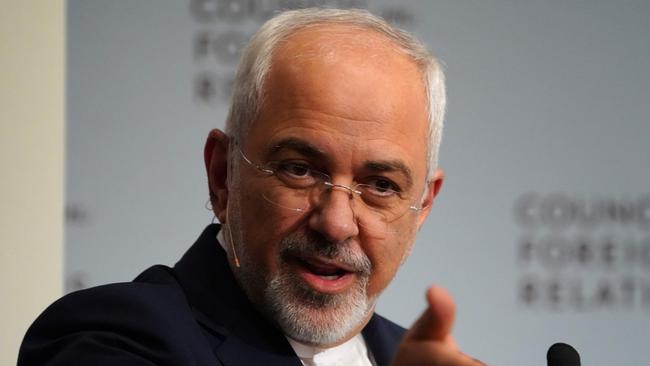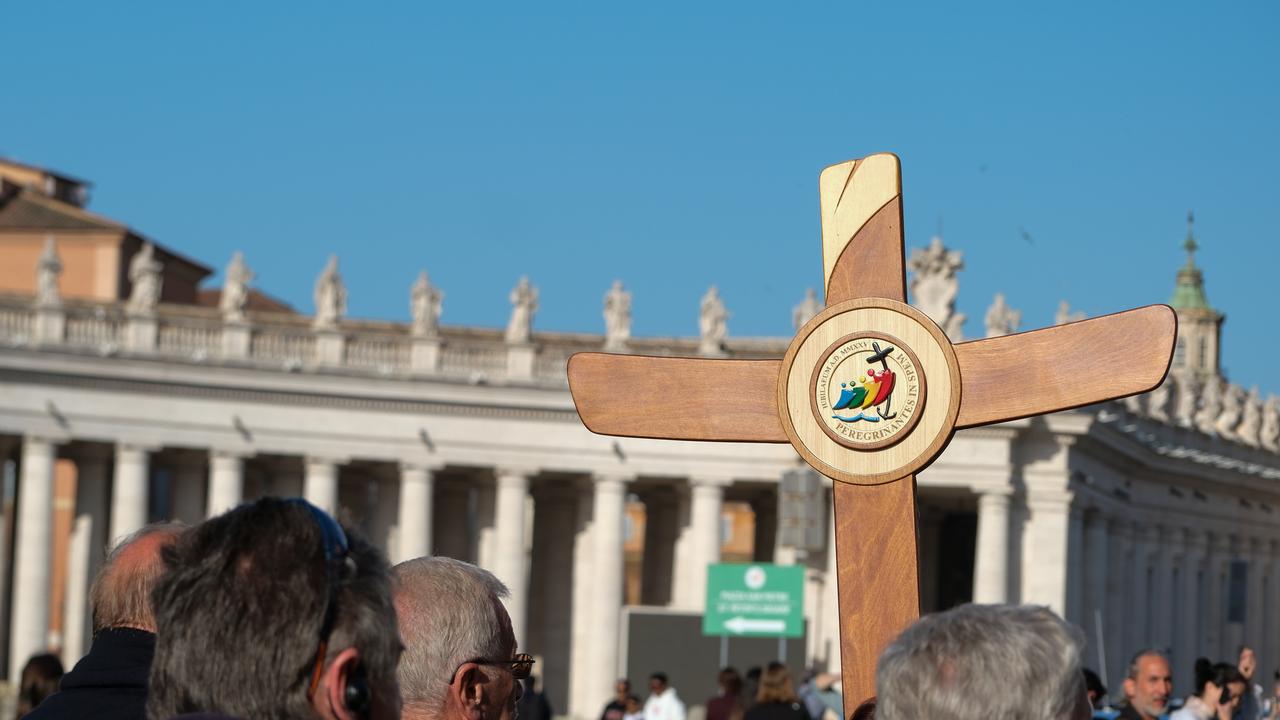US fears foreign minister: Rouhani
Iran’s President says sanctions on Mohammad Javad Zarif shows the US is afraid of his foreign minister.

Iranian President Hassan Rouhani says a US decision to impose sanctions on Mohammad Javad Zarif shows Washington is afraid of his Foreign Minister.
“They are afraid of our Foreign Minister’s interviews,” Mr Rouhani said in a televised speech, referring to a round of interviews Mr Zarif gave to foreign media in New York.
“It is completely clear that the foundations of the White House have been shaken by the words and logic of an informed, devoted and diplomatic individual. They are doing childish things now.”
The sanctions imposed on Wednesday freeze any of Mr Zarif’s assets in the US or that are controlled by US entities. The US said the sanctions would also curtail his international travel.
“Zarif implements the reckless agenda of Iran’s Supreme Leader, and is the regime’s primary spokesperson around the world. The United States is sending a clear message to the Iranian regime that its recent behaviour is completely unacceptable,” US Treasury Secretary Steven Mnuchin said.
The designation of Mr Zarif under the same sanctions earlier applied to Iran’s Supreme Leader, Ayatollah Ali Khamenei, is the latest blow by Donald Trump to the Obama administration’s attempt to end nuclear tensions through negotiations.
But in a mixed message to Tehran, Washington extended waivers for three Iranian civil nuclear projects, to avoid upsetting the other signatories to the 2015 Iran nuclear agreement, China, Russia, Germany, France and Britain.
“This is a short 90-day extension,” said National Security Adviser John Bolton, a champion of the hawkish policy towards Tehran. “We are watching those nuclear activities very, very closely, they remain under daily scrutiny.”
Mr Zarif has been at the heart of talks with foreign capitals over Iran’s nuclear power industry, which Tehran says is peaceful, but Washington and allies including Israel insist is cover for a secret weapons program.
A senior Trump administration official said Mr Zarif’s diplomatic image — bolstered by his fluent English, self-effacing humour and background as a US-educated academic — was false.
“The key issue is that he has had this veneer … of being the sincere and reasonable interlocutor for the regime. Our point today is that he is no such thing,” the official said yesterday.
“Today President Trump decided enough was enough,” the official said, accusing Mr Zarif of functioning as “propaganda minister, not foreign minister”.
Mr Zarif shot back, tweeting that Washington was trying to silence Iran on the international stage. “The US’s reason for designating me is that I am Iran’s ‘primary spokesperson around the world’ Is the truth really that painful?” he tweeted.
In addition to trying to freeze assets, Washington will also squeeze Mr Zarif’s ability to function as a globe-trotting diplomat. He is expected to be able to continue to visit the UN in New York, albeit under tight restrictions.
“The United States will continue to uphold our obligations,” the administration official said.
In mid-July, Secretary of State Mike Pompeo said that Mr Zarif would be issued a visa but would be limited to the area reaching six blocks around the UN headquarters.
Mr Trump pulled out of the 2015 denuclearisation accord last year which was negotiated by Mr Zarif and six nations including the US under former president Barack Obama and imposed crippling sanctions on Tehran’s economy, also vowing to curb Tehran’s regional influence.
With tensions escalating in June, Mr Trump said he issued a last-minute cancellation of military strikes on Iran after it shot down a US drone.
Critics question the legal or diplomatic rationale for targeting Mr Zarif, however, saying that sanctions will all but end the possibility of dialogue.
“If you sanction diplomats you’ll have less diplomacy,” Republican senator Rand Paul tweeted. The senior administration official insisted that Washington still wanted talks — only not with Mr Zarif.
AFP



To join the conversation, please log in. Don't have an account? Register
Join the conversation, you are commenting as Logout